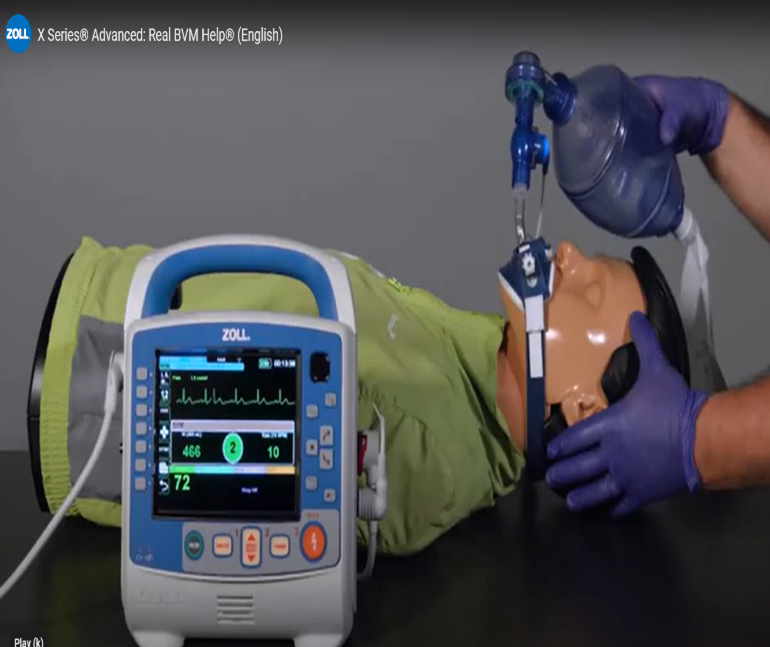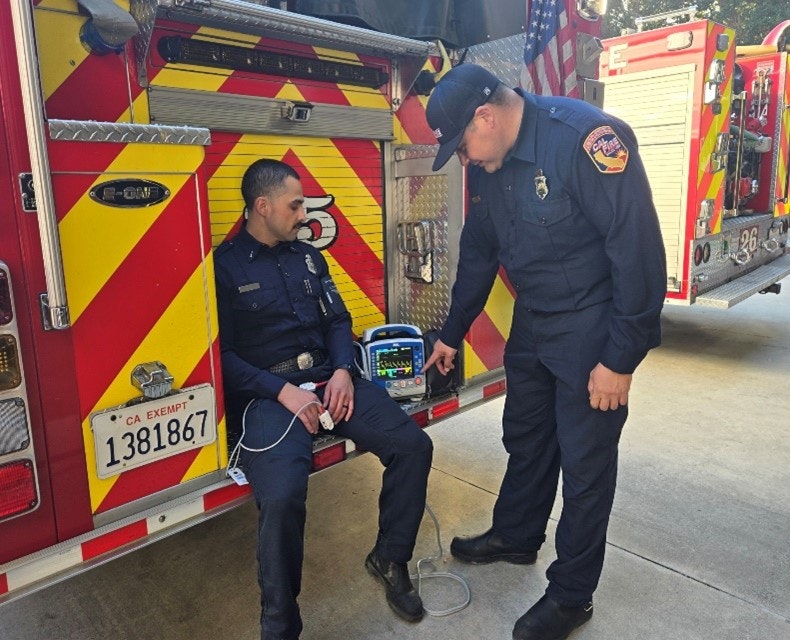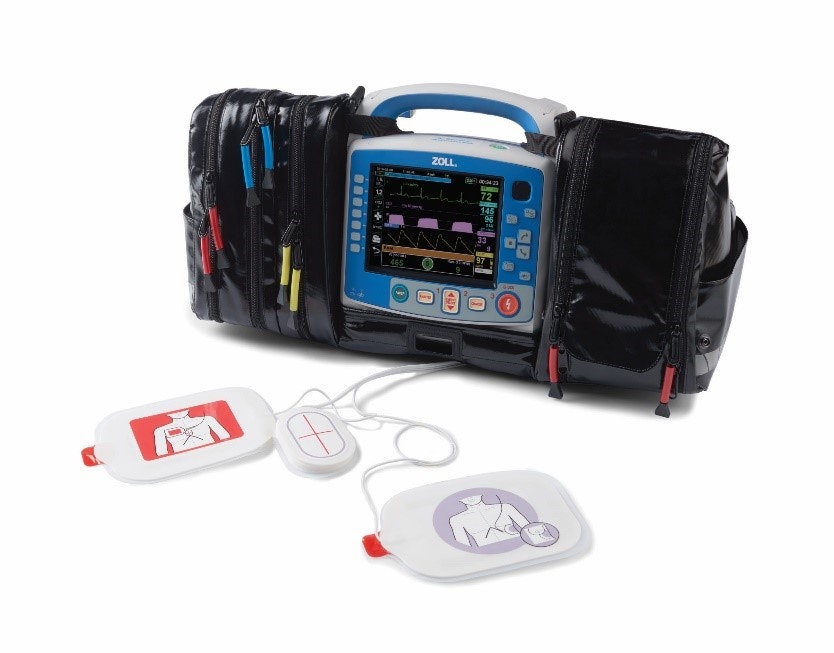Zoll X-Series Advanced ALS Monitor and Defribrillator

We are proud to announce that our Paramedics are now equipped with state-of-the-art advanced life support (ALS) Zoll X-Series Advanced ALS Monitor/Defibrillators.
These important additions allow our EMS team to transmit patient data collected from the monitor directly to the Emergency Room in real time, integrating it into our patient care reports. This enables hospitals to view EKGs and vital signs before the patient arrives, facilitating the activation of specialized hospital teams and ensuring immediate access to critical care resources, such as cardiac catheterization labs. This swift communication is crucial for preserving cardiac muscle health

Some of the additional advanced features of these units allow providers to monitor, target, and deliver tidal volume and ventilation rates directly on the device. Real-time feedback guides our team in delivering high-quality manual ventilation, a feat not possible with older models. This enhances the chances of achieving ROSC (Return of Spontaneous Circulation) and improve cardiac arrest save rates.

Furthermore, the Traumatic Brain Injury (TBI) Dashboard is crucial for patients suffering from traumatic brain injuries, where timely intervention is vital. The dashboard provides critical trending information, enabling paramedics to swiftly identify any deterioration in the patient’s condition. In cases of TBI, internal bleeding can create dangerous pressure within the skull, leading to inefficient breathing and potentially life-threatening complications. By detecting TBI early, paramedics can adjust patient interventions and ensure prompt transport to specialized trauma or neurosurgical hospitals.
We invite community members to visit our facility, see the new equipment, and meet your responders. We are profoundly grateful for the support from both the district and our community.
